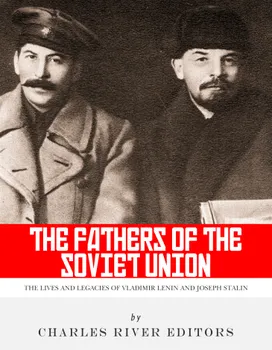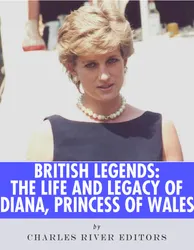Among the leaders of the 20th century, arguably none shaped the course of history as much as Vladimir Lenin (1870-1942), the Communist revolutionary and political theorist who led the Bolshevik Revolution that established the Soviet Union. In addition to shaping the Marxist-Leninist political thought that steered Soviet ideology, he was the first Soviet premier until his death and set the Soviet Union on its way to becoming one of the world’s two superpowers for most of the century, in addition to being the West’s Cold War adversary.
Given the Red Scare and the nature of the Cold War, Lenin has always been a divisive and controversial figure in Western society, especially among those who equate the Soviets with brutal repression and human rights abuses. Lenin also has his champions, who point to the fact that he got Russia out of World War I, was the first to successfully implement a modern socialist state, and worked tirelessly to elevate the working classes.
As it turned out, the creation of the Soviet Union came near the end of Lenin’s life, as he worked so hard that he had burned himself out by his 50s, dying in 1924 after a series of strokes had completely debilitated him. Since his life before the Soviet Union naturally gets less focus, Lenin remains a bit of an unknown among many, and he is likely a lesser known or notorious figure than his successor, Joseph Stalin.
If Adolf Hitler had not inflicted the devastation of World War II upon Europe, it’s quite likely that the West would consider Joseph Stalin (1878-1953) the 20th century’s greatest tyrant. A Bolshevik revolutionary who played a crucial role in the Russian Revolution of 1917 and the establishment of the Soviet Union, Stalin was one of the Communist regime’s earliest leaders and went about consolidating power after the death of Vladimir Lenin, whose final wishes were that Stalin be removed from his post as General Secretary of the Communist Party and not be given the ability to take power.
Of course, Stalin managed to do just that, modernizing the Soviet Union at a breakneck pace on the backs of millions of poor laborers and prisoners. Before World War II, Stalin consolidated his position by frequently purging party leaders (most famously Leon Trotsky) and Red Army leaders, executing hundreds of thousands of people at the least. In one of history’s greatest textbook examples of the idea that the enemy of my enemy is my friend, Stalin’s Soviet Union allied with Britain and the United States to defeat Hitler in Europe, with the worst of the war’s carnage coming on the eastern front during Germany’s invasion of Russia. Nevertheless, the victory in World War II established the Soviet Union as of the world’s two superpowers for nearly 50 years, in addition to being the West’s Cold War adversary.
By the time Stalin died in 1953, it was written that he “had found Russia working with wooden ploughs and [is] leaving it equipped with atomic piles.” Of course, he was reviled in the West, where it was written, “The names of Lenin, Stalin, and Hitler will forever be linked to the tragic course of European history in the first half of the twentieth century.”











